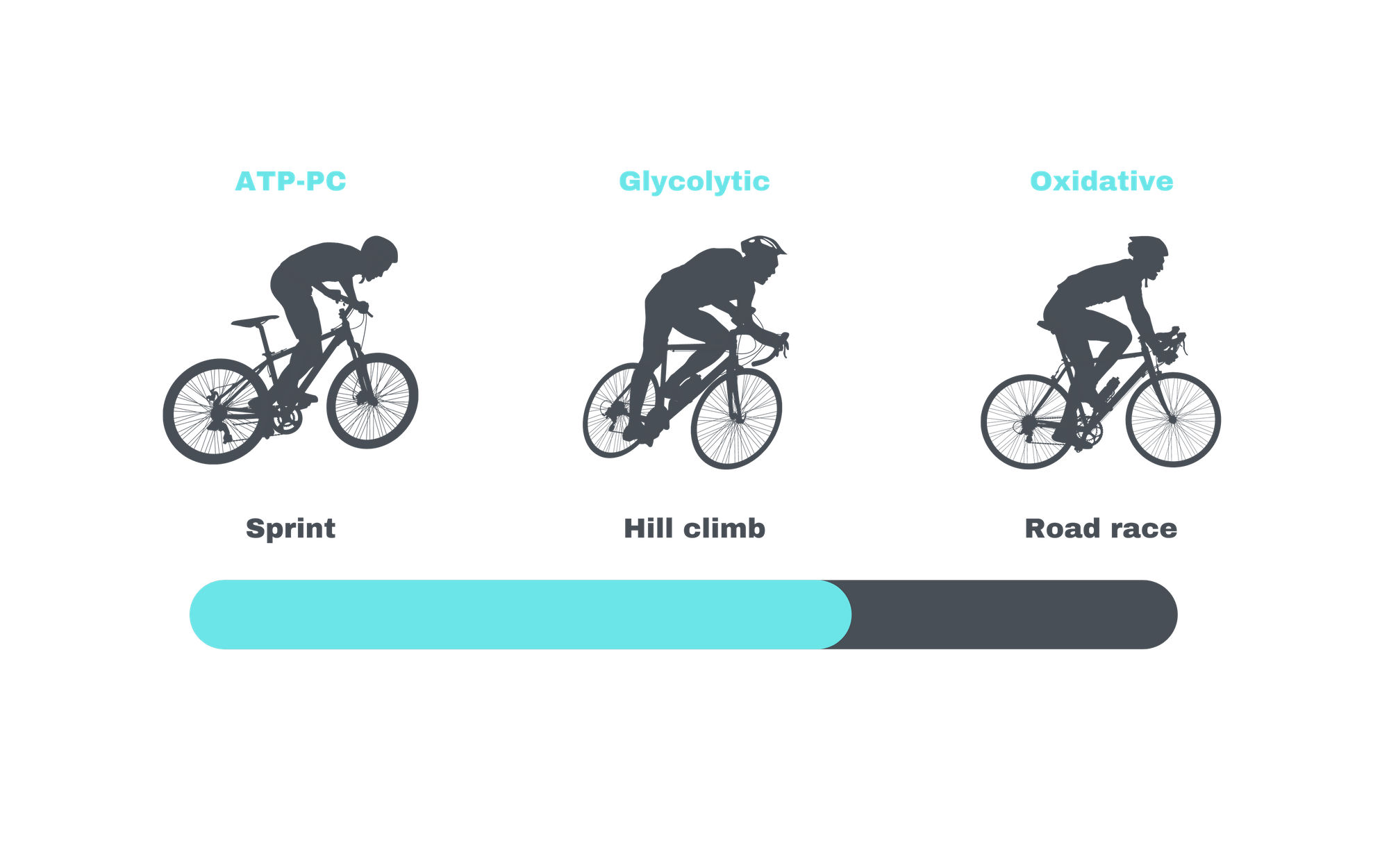To achieve their superior cycling performance, elite cyclists training schedules are meticulously planned on a perfect balance of training stress and recovery. After analysing the event demands, training schedule, and the riders current physiology, coaches and sports scientists must consider the optimal training approach for each riders individual needs.
With this in mind, and to achieve the greatest training stimuli, they must carefully manipulate the volume, intensity, distribution, recovery, and other factors (i.e. nutrition, psychology) of a training plan in order to produce the perfect plan. This process is referred to as smart training.
This approach shouldn't be limited to just the professionals. Implementing this approach to a training plan provides the best approach for all cyclists from all different levels of the sport, whatever their goals might be. Pocket solutions like Pillar help you to achieve this same level of balance and organisation.

Get the biggest bang for your buck
There are various methodologies that one might use when prescribing a cyclist's training. All of these will have various benefits to certain groups of people. It can take years to become an expert on which methodology will work in which situation, but to summarise one of the key factors in determining which is best, we will just look at ensuring you get the most from your time.
To demonstrate, consider conducting a traditional base period of low intensity hours on the bike. While this might have some worth and merit for a cyclist with many hours per week, the modern amateur cyclist who has far less will not see much, if any, value from spending this time at lower intensity.
A polarised approach to training, where you would spend your training time at either high or low intensity, might be a better option if you have limited training time. Focusing on something other than just base training, might mean the returns are significantly higher. Of course, there will be other factors that are considered, but from a balancing training around other commitments, getting the biggest bang for your buck is the most valuable use of your time.
We've worked with industry-leading sports scientists, pro racers and nutritionists to create the training methodology behind Pillar. You can read more about the team here.

Making your training smart(er)
Smart training refers to the process of implementing a science-backed training plan to achieve the greatest training stress and adaptations. Implementing this approach to your training will ensure the most effective structure to your plan that addresses your current strengths and weaknesses and provides a clear direction towards your goals and needs.
To achieve the greatest performance outcomes and to implement this approach, a training plan must target specific energy systems, and provide adequate time for the adaptations to occur. Additionally, it must constantly consider and re-evaluate the event demands, training, and the rider's physiology.
For every pedal stroke, energy is required. All energy that is produced to allow work to be done is produced from the breakdown of the molecule ATP.
The human body has three major energy systems that can produce ATP; ATP-PC system, Glycolytic system, and Oxidative system. Both the ATP-PC and the Glycolytic system are anaerobic pathways, meaning that they don't require oxygen to produce ATP. The Oxidative system is an aerobic pathway, it requires oxygen to produce ATP.

All three energy systems are engaged during cycling activity, but the extent to which each one is involved varies depending on the duration, intensity, and other demands of the activity. To train effectively, you must stress and train specific energy systems that are most relevant to your event demands and current strengths and weaknesses.
Through manipulating the training volume, intensity, and distribution you can target these specific energy systems. A smart training approach will ensure that you are always training the most optimal energy systems for your current strengths and weaknesses and event demands.
Alongside training these specific energy systems, smart training also ensures that whilst following a training plan, you are also allowing sufficient time to recover and adapt. If the latter is neglected, the cyclist will fail to adapt to the training stimuli and will risk the possibility of overtraining.
Planning adequate recovery is equally as important as planning the right training. However, despite this it is often overlooked by riders. A smart training plan will also allow the most optimal structure for each training session, training week, and training block so that the blunting of adaptive responses to training is minimised or avoided.
A smart approach also requires a continuous evaluation and analysis of the training plan. The training plan must evolve and progress in sync with the cyclist. As a result of all humans responding and adapting differently to different stimuli, to achieve the most optimal training adaptations, each plan is required to be specific to the physiology and responses of each cyclist.
Simply, a one size fits all approach is not effective when it comes to optimal training.
Why Pillar?
A smart training approach is not just for elite cyclists. If you are preparing for an event, or just trying to get faster, improve fitness, or target weight loss, you will see the biggest gains from training by implementing this approach with Pillar's help.
Pillar provides you with a unique training plan based on your current fitness, training availability, and goals, which dynamically updates in real-time. We'll never fall into the trap of prescribing you endless sweet spot sessions to get quick but short-lived gains. Pillar aims to guide you using polarised training to your absolute best.
Behind the app, Pillar has a team of elite coaches and world-class sports scientists who are continuously implementing the most cutting edge science into your training. Therefore, effectively Pillar is providing you with World Tour Team support that is accessible from an app.
